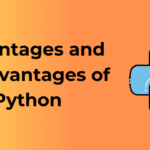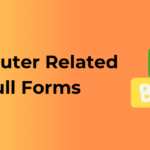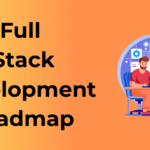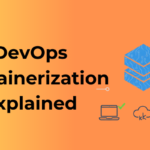Hello there, future Python professional! If you’ve ever wondered what it truly takes to land an entry-level Python job, you’re not alone. Let’s break it down step by step so that you can walk into your job search confident and well-prepared.
Key Skills Employers Look for in Python Beginners
So, you’ve decided to launch your career with Python—excellent choice! Python is one of the most in-demand programming languages right now, and there are plenty of opportunities for beginners. But before you dive into applications, let’s talk about the key skills employers are hunting for in entry-level Python developers. Spoiler alert: It’s not just about knowing Python basics!
1. Strong Foundation in Python Fundamentals
First things first—employers expect you to be comfortable with the core of Python. This includes having a solid grasp of:
- Data types like strings, integers, lists, dictionaries, and tuples.
- Control structures such as loops (for, while) and conditional statements (if/elif/else).
- Basic algorithms like sorting and searching.
- Functions—how to write them, use arguments effectively, and understand scope.
If these are second nature to you, you’re already a step ahead! If not, don’t worry—crack open a Python tutorial and start practicing right away. Hands-on experience goes a long way.
2. Problem-Solving Ability
Think of Python as your trusty tool—the real skill is knowing how to use it to solve problems. Employers love candidates who can take a real-world challenge, break it into smaller pieces, and craft a solution using Python. Prove your analytical thinking by tackling coding challenges or building small projects. Websites like HackerRank or LeetCode can help you sharpen your problem-solving muscle.
3. Familiarity with Libraries and Frameworks
Experienced developers love Python because of its rich ecosystem of prebuilt libraries and frameworks, and employers expect you to know the essentials! As a beginner, prioritize mastering:
- NumPy and Pandas for data manipulation.
- Matplotlib or Seaborn for visualization.
- Flask or Django for web development (even a basic understanding is valuable).
You don’t need to be an expert in all of these, but showing that you’ve dabbled a little in key tools will make your resume shine.
4. Version Control Skills
Ever heard of Git? It’s not just a buzzword—learning version control with Git is practically a must for every programmer today. Employers want team players who can collaborate using tools like Git and GitHub. Start by learning how to:
- Pull code repositories.
- Commit changes.
- Merge branches without breaking into a cold sweat!
Don’t underestimate this skill. It demonstrates you’re ready to work in a modern Agile environment.
5. Communication and Collaboration
Yes, technical chops are essential—but being able to explain your code and work well in a team is just as important. Entry-level jobs often involve working with senior developers, and they’ll appreciate it if you can share your thoughts clearly and ask smart questions. Remember: No one expects perfection, but showing a willingness to learn and collaborate is key.
Popular Industries for Entry-Level Python Jobs
When you’re just setting foot into the world of Python development, knowing where to look is half the battle. The good news is Python’s versatility means it powers countless industries, and you have a chance to step into some pretty exciting fields right from the start of your career.
Here’s a handy breakdown of some of the most popular industries that consistently offer opportunities for Python beginners, along with tips to help you explore them:
1. Tech Industry (Startups & Established Giants)
It’s no surprise that the tech industry tops the list. From agile startups to well-established tech giants like Google, Facebook, and Microsoft, Python is in high demand as it’s a go-to language for both software and web development. Startups, in particular, are often keen to hire entry-level developers who can grow with their company. Pro-tip: Brush up on frameworks like Django and Flask to make yourself more appealing for roles focused on Python-based web applications.
2. Data Science & Analytics
Data is the new gold, and guess what? Python is the favorite pick for extracting, analyzing, and visualizing it! If you’ve worked with Pandas, NumPy, or Matplotlib, you’ll feel right at home in this sector. While some data science roles might demand a higher level of expertise, there are several junior positions such as data technician or data analyst that provide a perfect starting point for mastering your skills.
3. Finance & FinTech
The finance sector has embraced Python with open arms because of its efficiency and capability to automate processes. Python is often used to build trading algorithms, automate data reports, and evaluate financial risks. As a beginner, look out for junior developer roles or internships with FinTech companies. Don’t forget to highlight your ability to work with libraries like NumPy or those related to financial analysis!
4. Education Technology (EdTech)
EdTech companies are constantly using Python to build new platforms and tools to make learning more engaging. Being part of this industry is a rewarding way to contribute to shaping modern education while honing your development skills. Apply for roles where you can work on interactive educational software or support developers in making learning management systems.
5. Healthcare & Bioinformatics
Python’s simplicity makes it ideal for managing the complexity of healthcare data. In this industry, you may work on projects analyzing medical data, building predictive models, or even contributing to genetic research. Python newcomers with an interest in science or biology will find this field incredibly fulfilling. If you’d love to combine tech with health, research junior roles in healthcare startups or labs.
6. Gaming
Yes, even the gaming world loves Python! Tools like Pygame make it a preferred choice for building game logic and producing small game engines. Joining a gaming studio as an entry-level developer will give you the chance to flex both your coding and creative muscles.
Essential Python Projects to Build Your Resume
So, you’ve decided to dive into the world of Python and break into the job market. Fantastic choice! One of the best ways to showcase your potential is by building portfolio-worthy Python projects. Whether you’re a complete beginner or feeling pretty confident, creating practical, real-world Python projects is like adding feathers to your cap—highly visible and worth showcasing.
Why Do Projects Matter?
Let’s be real: employers love to see what you can do beyond your qualifications. They want to know, “How can this candidate solve real problems using Python?” This is where projects shine. A well-thought-out project not only shows your technical skills but also your ability to solve problems, think critically, and even understand user needs! Plus, having tangible work to show potential employers can set you apart from other candidates who only list skills without putting them into practice.
What Makes a Good Python Project?
The key to a strong project is relevance. A project that highlights your understanding of in-demand concepts, like data analysis, web development, or automation, will resonate better than a generic “Hello, World!” program. Don’t worry if you’re just getting started—you don’t need to climb Mount Everest as your first hike. Start small, learn as you go, and keep improving upon each project.
Project Ideas to Get You Started
Here are some beginner-friendly yet impactful project ideas to spruce up your resume:
- Build a To-Do List App: This is a classic project and a great way to showcase your ability to create functional apps using Python. Use libraries like
tkinterfor a GUI or build a command-line version! - Web Scraper: Show off your data extraction skills by creating a script that pulls data from websites. Use libraries like
BeautifulSouporScrapy. Imagine scraping e-commerce sites for product prices—it’s super practical! - Weather App: Create a weather application that fetches real-time weather data using APIs, such as the OpenWeather API. Bonus points if you integrate visualization libraries for weather patterns!
- Personal Expense Tracker: Employers will love how you used Python to solve a real-world problem. Build a program to manage personal finances, categorize expenses, and maybe even generate a report.
- Portfolio Website: Use
FlaskorDjangoto develop your own portfolio site. It’s like a two-in-one project—your site showcases your Python skills and serves as an attractive display for your work.
How to Make These Projects Shine
It’s not just about building something—it’s about polishing and presenting it well. Here’s what to focus on:
- Make it Open Source: Use GitHub to host your projects. Not only does this prove you understand version control (a must-have skill), but it also gives potential employers a quick, accessible way to review your work.
- Write Clean Code: Follow best coding practices. Use meaningful variable names, comment your code, and organize it in a readable way. Employers notice the “behind-the-scenes” work!
- Add Documentation: Create a clear README file explaining what your project does, what tools you used, and how others can run/use your code. Think of it as a guide for your project.
- Show Off the Results Creatively: Share screenshots, examples, or even videos of your project in action to demonstrate its functionality and user experience.
How to Find Genuine Entry-Level Python Opportunities
If you’re just starting your Python journey and feeling a little overwhelmed when searching for entry-level positions, don’t worry! You’re not alone. Finding authentic opportunities doesn’t have to feel like finding a needle in a haystack. Let’s dive into some useful strategies and practical tips to help you locate those hidden gems.
1. Utilize Trusted Job Platforms
First things first, make sure you’re starting your search on reliable websites. Platforms like LinkedIn, Indeed, Glassdoor, and even dedicated tech job boards such as AngelList and Hired are great places to look. Many of these sites have filters for “entry-level” positions, which can narrow down the search to roles that match your skill level.
For tech-specific job boards, consider checking out StackOverflow Jobs or We Work Remotely. These can be goldmines for Python-related roles.
2. Don’t Ignore Internships and Freelance Gigs
If a full-time entry-level position feels out of reach right now, internships or freelance opportunities can be a fantastic way to get your foot in the door. Companies often look for interns equipped with basic Python skills, and many freelance gigs require just the foundational knowledge. Bonus? These opportunities let you build your experience while giving your resume a little boost.
Freelance platforms like Upwork, Fiverr, and Toptal are perfect for finding smaller, bite-sized projects. They might not always guarantee a steady paycheck, but they do offer valuable real-world experience.
3. Leverage Your Local and Online Networks

Networking isn’t just for seasoned professionals; it’s incredibly useful for beginners too! Join Python-related communities online. Platforms like Reddit have thriving tech subreddits, such as r/learnpython and r/cscareerquestions, where you can find job postings and advice.
Additionally, meetups or local coding groups can be fantastic for building connections. Websites like Meetup or coding bootcamps often host events that might lead to job opportunities. Don’t forget to follow Python user groups on LinkedIn as well!
4. Tap Into Job Alerts and Referrals
Set up job alerts on platforms like LinkedIn and Indeed. This will save you time by having opportunities delivered straight to your inbox. It’s also worth letting your personal and professional circles know that you’re on the lookout for entry-level Python roles. Many jobs aren’t publicly advertised and are filled through referrals!
5. Look for Junior Developer Roles
Employers may not always use the term “entry-level” in job descriptions. Keep an eye out for titles like “Junior Python Developer”, “Junior Software Engineer”, or even roles like “Data Analyst with Python”. Don’t hesitate to apply if you meet 60%-70% of the qualifications — many job descriptions are wishlists, not must-haves!
6. Beware of Scams
Lastly, a word of caution: Be cautious of too-good-to-be-true job postings claiming “No experience needed!” while asking for a fee to apply. Genuine employers will never ask you to pay for a job application. Always research the company before sending over personal information.
Building Your Network in the Python Community
Let’s face it: success in the tech world isn’t just about what you know. It’s also about who you know. Networking can be your secret weapon when trying to land your first entry-level Python job. But don’t worry—networking doesn’t have to be intimidating. In fact, the Python community is one of the most welcoming and collaborative out there! Here’s how you can effectively build your connections and unlock exciting opportunities.
1. Tap Into Online Communities
The beauty of Python is that it has a massive and vibrant online community. Joining online forums, groups, or even following hashtags on social media can help you connect with like-minded individuals. Check out the following:
- Reddit: Subreddits like r/Python or r/LearnPython are great places to ask questions, share knowledge, and engage with Python enthusiasts.
- Discord: Many Python developers hang out on Discord channels. Look for Python-focused servers where you can connect with both newbies and seasoned developers.
- Stack Overflow: While primarily for asking and answering coding questions, engaging respectfully in discussions can help you showcase your expertise over time.
Don’t shy away from introducing yourself in these forums. A simple “Hi, I’m just starting out with Python and eager to connect!” can open doors to mentorship, job leads, or collaboration on projects.
2. Attend Python Meetups and Conferences
Python events (both virtual and in-person) are golden opportunities to meet other developers. Look for meetups and conferences focused on Python programming, such as:
- PyCon: This is the ultimate Python conference, held in various locations worldwide. Even entry-level programmers will benefit from the networking opportunities here.
- Local meetups: Use platforms like Meetup.com to find Python groups in your area. These events are generally casual and open to everyone, beginners included.
When attending these events, step out of your comfort zone and introduce yourself to others. Share your story—people love to hear about your journey, even at the very beginning.
3. Contribute to Open-Source Projects
Contributing to open-source projects is beneficial for both your portfolio and networking. Platforms like GitHub are teeming with Python projects that welcome new contributors. Not only will this let you hone your skills, but you’ll also get to collaborate with talented developers who could become valuable contacts down the road.
Start by solving small issues or adding documentation to a project, and don’t hesitate to communicate openly with the project maintainers. Over time, these interactions could lead to mentorship or job referrals.
4. Leverage LinkedIn for Professional Connections
Don’t underestimate the power of LinkedIn! Regularly post updates on your Python learning journey, achievements, or any projects you’ve completed. Follow thought leaders in the Python community, and don’t hesitate to reach out with personalized connection requests.
When sending a connection request, write a thoughtful message like:
“Hi [Name], I’m an aspiring Python developer and came across your profile through your work on [Project/Company]. I’d love to connect and learn more about the Python community!”
5. Build Genuine Relationships
It’s easy to get caught up in the idea of networking as merely exchanging business cards or LinkedIn profiles. But don’t forget that it’s about building real, genuine connections. Take time to nurture these relationships by engaging with others’ posts, participating in discussions, or offering to help if someone has a question or problem you can solve.






















